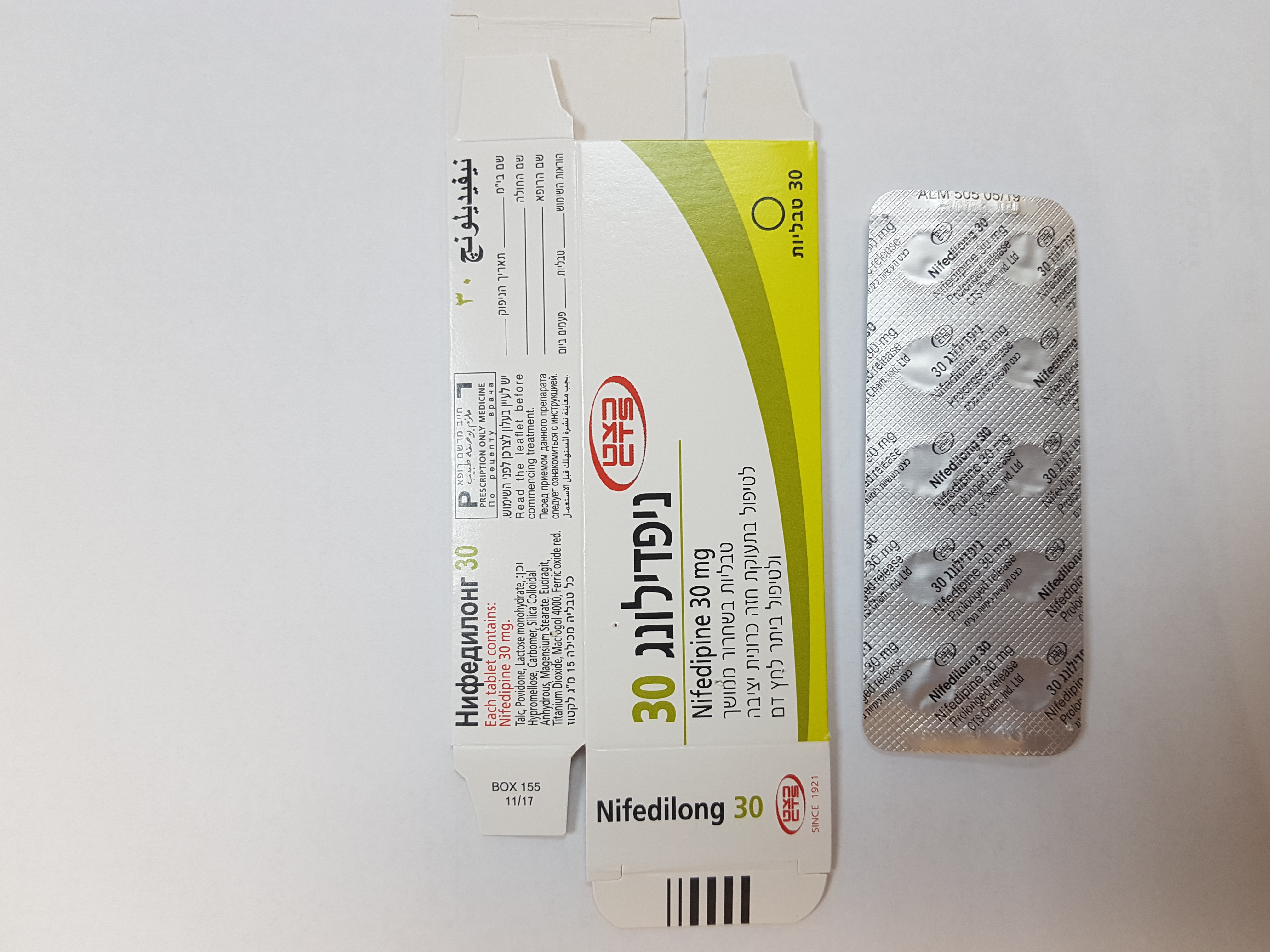Quest for the right Drug

ניפדילונג 30 NIFEDILONG 30 (NIFEDIPINE)
תרופה במרשם
תרופה בסל
נרקוטיקה
ציטוטוקסיקה
צורת מתן:
פומי : PER OS
צורת מינון:
טבליות בשחרור ממושך : TABLETS PROLONGED RELEASE
עלון לרופא
מינוניםPosology התוויות
Indications תופעות לוואי
Adverse reactions התוויות נגד
Contraindications אינטראקציות
Interactions מינון יתר
Overdose הריון/הנקה
Pregnancy & Lactation אוכלוסיות מיוחדות
Special populations תכונות פרמקולוגיות
Pharmacological properties מידע רוקחי
Pharmaceutical particulars אזהרת שימוש
Special Warning עלון לרופא
Physicians Leaflet
Overdose : מינון יתר
4.9 Overdose Symptoms The following symptoms are observed in cases of severe nifedipine intoxication: Disturbances of consciousness to the point of coma, a drop in blood pressure, tachycardia, bradycardia, hyperglycaemia, metabolic acidosis, hypoxia, cardiogenic shock with pulmonary oedema. Treatment As far as treatment is concerned, elimination of nifedipine and the restoration of stable cardiovascular conditions have priority. Elimination must be as complete as possible, including the small intestine, to prevent the otherwise inevitable subsequent absorption of the active substance. The benefit of gastric decontamination is uncertain. 1. Consider activated charcoal (50 g for adults, 1 g/kg for children) if the patient presents within 1 hour of ingestion of a potentially toxic amount. Although it may seem reasonable to assume that late administration of activated charcoal may be beneficial for sustained release (SR, MR) preparations there is no evidence to support this. 2. Alternatively consider gastric lavage in adults within 1 hour of a potentially life-threatening overdose. 3. Consider further doses of activated charcoal every 4 hours if a clinically significant amount of a sustained release preparation has been ingested with a single dose of an osmotic laxative (e.g., sorbitol, lactulose or magnesium sulfate). 4. Asymptomatic patients should be observed for at least 4 hours after ingestion and for 12 hours if a sustained release preparation has been taken. Haemodialysis serves no purpose as nifedipine is not dialysable, but plasmapheresis is advisable (high plasma protein binding, relatively low volume of distribution). Hypotension as a result of cardiogenic shock and arterial vasodilatation can be treated with calcium (10-20 ml of a 10 % calcium gluconate solution administered intravenously over 5-10 minutes). If the effects are inadequate, the treatment can be continued, with ECG monitoring. If an insufficient increase in blood pressure is achieved with calcium, vasoconstricting sympathomimetics such as dopamine or noradrenaline should be administered. The dosage of these drugs should be determined by the patient's response. Symptomatic bradycardia may be treated with atropine, beta- sympathomimetics or a temporary cardiac pacemaker, as required. Additional fluids should be administered with caution to avoid cardiac overload.

שימוש לפי פנקס קופ''ח כללית 1994
Hypertension, vasospastic angina (Prinzmetal), chronic stable angina
תאריך הכללה מקורי בסל
01/01/1995
הגבלות
תרופה שאושרה לשימוש כללי בקופ'ח
מידע נוסף
